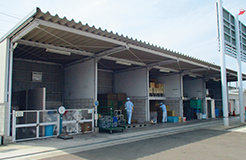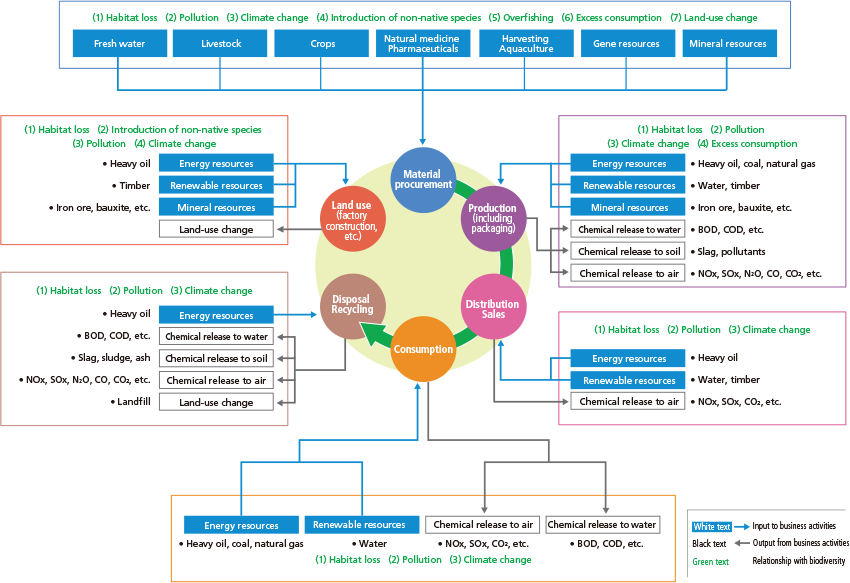Yakult Honsha plants and bottling companies are implementing measures to curb waste generation as well as promote recycling, and are aiming to reach zero waste generation.*
Waste generated by Yakult Honsha plants and bottling companies in fiscal 2021 totaled approximately 2,571 tons (approx. 1,732 tons by Yakult Honsha plants and approx. 839 tons by bottling companies). As a result of diverse efforts made to reduce waste, we successfully reduced waste generation by 26.7% compared to that of fiscal 2010, an action target of Environmental Actions (2021–2024).
We also strive to further promote the reuse of packing materials and the introduction of returnable packing materials. In addition, we are changing our waste recycling programs from thermal recycling at waste disposal contractor facilities to material recycling. We will continue to make improvements in our recycling programs while reducing processing expenses.
*
Yakult’s definition of zero waste generation: A state achieved when the amount of waste for final disposal (landfill) from plants (excluding specially controlled industrial waste) is less than 1% of waste generated

Eco station at Fukushima Plant
Yakult's dairy products are made to order and produced through a lean production system. We strive to reduce our food loss and waste by limiting excess inventory and other measures.
In fiscal 2021, as an initiative to reduce food waste, we donated a portion of our products marked for disposal (soft drinks in easily manageable paper packages and plastic containers) to food bank organizations. In June 2021, we donated 2,952 cases of soft drinks in plastic containers to the NPO Food Bank Yamagata, and in March 2022, following a soft drink product redesign, we provided former versions of the products in paper packaging to 37 food banks through Food Bank All Japan.
Yakult clearly stipulates in one of the Action Directives in the Yakult Basic Policy on the Environment that “In all business activities, business units will give due consideration to the environment as well as biodiversity by promoting the reduction of environmental impacts.” We believe it is essential to give consideration to the global environment and biodiversity in our corporate activities that aim to benefit the health of our customers. We will strive to conserve biodiversity going forward by making good use of the technology we have built up in research and development over the years.
At each step of our business activities, from material procurement to disposal and recycling, we review our dependency and our impact on the environment, and then clarify the relationship between business activities and biodiversity as shown below:
